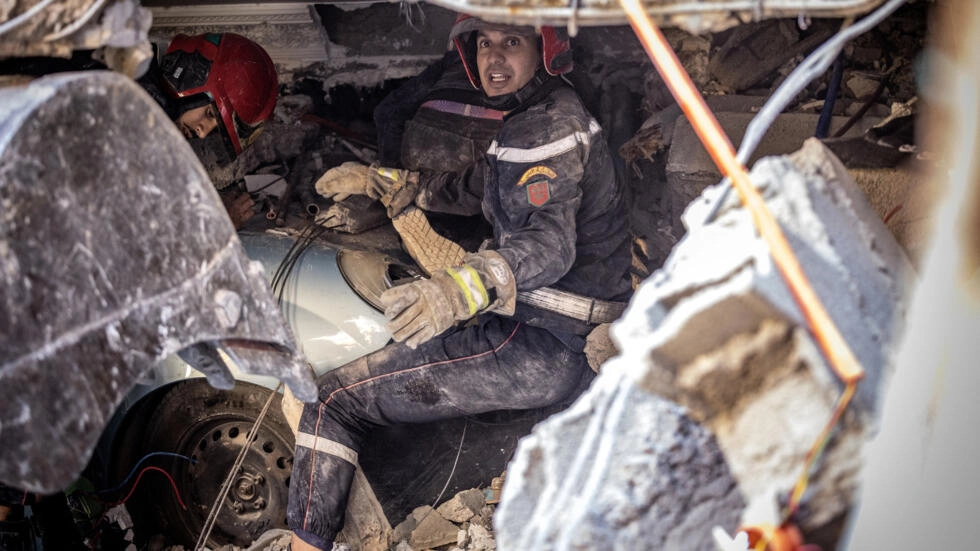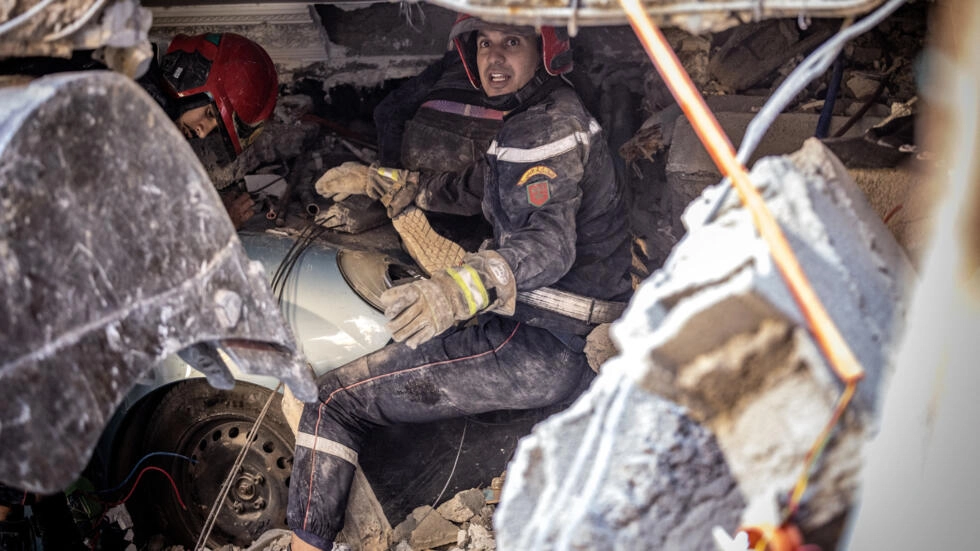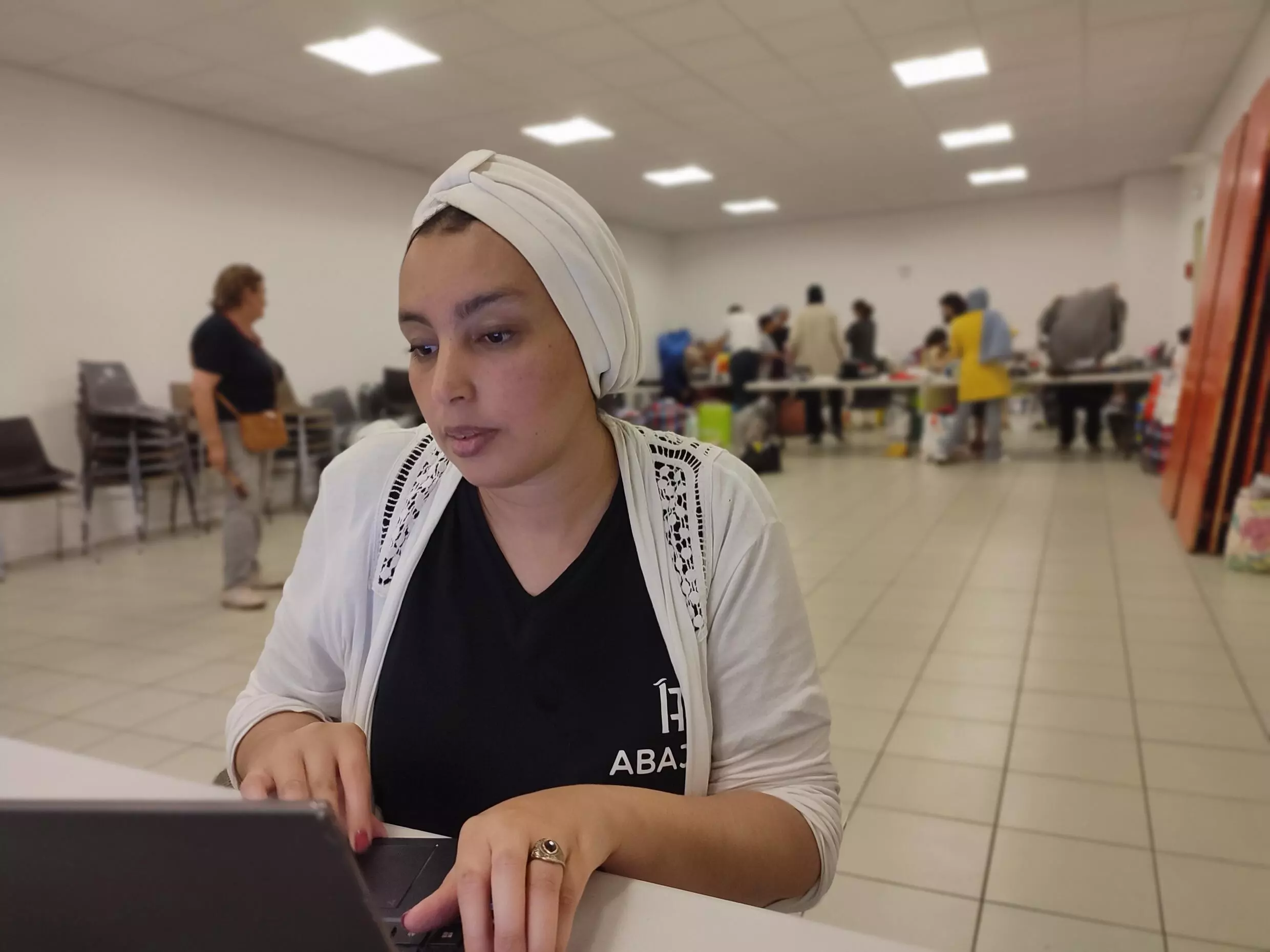
In a shocking turn of events, Morocco was struck by an unprecedented tragedy on September 8 when a magnitude 7 earthquake rattled the province of Al-Haouz, claiming the lives of over 2,000 people and leaving widespread devastation in its wake. While seismic risks were recognized in the region, the sheer magnitude of this earthquake caught experts by surprise. We spoke with seismologist Florent Brenguier from Grenoble University's Institut des Sciences de la Terre to gain deeper insights into this tragic event.
Morocco's seismic vulnerability has historically been concentrated in the northern part of the country, where the African and European tectonic plates meet, notably around the Strait of Gibraltar. However, the mountainous Atlas region, where this earthquake struck, remains at risk. While earthquakes in this area are infrequent, their potential for significant magnitude is a sobering reality, exemplified by the devastating Agadir earthquake in 1960, which claimed 12,000 lives and nearly wiped out an entire city.
The intriguing aspect of this earthquake is its occurrence away from a plate boundary. Unlike the recent earthquake in Turkey, which occurred along the boundary of two major plates, Morocco's earthquake transpired within a smaller faultline, approximately 30 kilometers in length. The energy released was notably lower, resulting in a more localized impact. Had it been of a similar scale to Turkey's, the devastation in Marrakech would have been immense.
Regarding aftershocks, the intensity tends to diminish over time. While a 4.5 magnitude aftershock has already been observed, the likelihood of substantial aftershocks is reduced. However, the initial earthquake can sometimes trigger a separate seismic event, not classified as an aftershock. This phenomenon, observed in Turkey, Japan, and California, indicates that Morocco may experience another significant earthquake, albeit not necessarily along the same faultline, in the coming hours, days, weeks, or even months.
One question remains: why can't earthquakes be predicted with certainty? Currently, we can only identify seismic zones, such as the Atlas region. The challenge lies in predicting the maximum magnitude that these zones can produce. Additionally, pinpointing the exact timing of an earthquake remains elusive. While scientists continue to research potential warning signs, reliable prediction methods are yet to be discovered.
The field of earthquake prediction is evolving, offering hope that future advancements may enable us to anticipate seismic events. For now, our best defense lies in preparedness, vigilance, and ongoing research into understanding the unpredictable forces of nature.
Florent Brenguier's insights shed light on the complex nature of earthquakes and the ongoing quest to protect communities from their devastating impacts.
While Morocco grapples with the aftermath of this unforeseen earthquake, the insights provided by seismologist Florent Brenguier remind us of the intricate challenges in understanding and preparing for seismic events.

The key takeaway from this tragedy is the ever-present risk of earthquakes in regions not traditionally associated with significant seismic activity. Morocco's experience serves as a stark reminder that our understanding of the Earth's geological forces remains a work in progress. Seismologists and researchers continually work towards a better grasp of these phenomena, striving to provide early warnings and preparedness measures.
As we reflect on the recent events in Morocco, it's important to emphasize the importance of preparedness at both individual and community levels. While predicting earthquakes remains a formidable challenge, being informed about seismic risks, having emergency plans in place, and adhering to building codes designed to withstand earthquakes can significantly mitigate the impact of these natural disasters.
The story of Morocco's earthquake serves as a sobering reminder of our vulnerability to the unpredictable forces of nature. It also underscores the resilience and unity of communities in the face of adversity. Our thoughts are with the people of Morocco as they rebuild and recover from this tragic event, and we remain committed to advancing the science of seismology to protect lives and livelihoods in the future.

Numerous French cities and regions have pledged logistical or financial support for Morocco. The mayor of Marseille offered the assistance of the city’s firefighters, and Valérie Pécresse, the president of the Île-de-France council, promised half a million euros in aid.
The French foreign affairs ministry has activated external action funds to bolster local authorities' efforts. Managed by the ministry’s Crisis and Support Centre, these funds enable local governments to provide emergency disaster relief worldwide. Already, local authorities have offered nearly €2 million in assistance.
In the face of adversity, the spirit of solidarity and compassion in France shines brightly, crossing borders and uniting people to provide crucial support to those affected by this tragic earthquake in Morocco.
Title: French Solidarity Soars Following Morocco's Devastating Earthquake
In the wake of a devastating earthquake that claimed over 2,000 lives in Morocco, a remarkable wave of support has surged across France. French cities and civic organizations have united to provide vital aid to the regions hardest hit.
In a room graciously provided by the Châtillon town hall, just south of Paris, a dedicated group of women tirelessly sorted through an unending stream of donations. These contributions included clothing, tents, quilts, medicine, and food, all earmarked for those in dire need.
With approximately 1.5 million people of Moroccan descent in France, the tremors of this disaster reverberated deeply on the other side of the Mediterranean. The Moroccan diaspora, comprising around 670,000 dual nationals, felt a profound connection to the tragedy.
Fedoua, a volunteer, shared her personal connection, saying, "It’s the country I was born in, and I grew up there, so obviously it affected me." Latifah, originally from northern Morocco, added, "It really shocked me. I think that it took me 24 hours to realize what had happened." She, too, joined the volunteers, impressed by the overwhelming support for the donation drive.
The solidarity extended beyond the Moroccan community. Many French citizens felt a strong bond with Morocco, given its history as a French protectorate from 1912 to 1956. Boubou, who had no personal ties to Morocco, emphasized the importance of helping those in need, saying, "I think in these moments we’re all connected."
Dounia Hannach, the driving force behind this donation effort, founded the Abajad association in 2018, offering French language courses to help people find employment. With an Abajad office in Morocco, Hannach aims to quickly transport the collected donations from France, focusing on winter clothing, blankets, and tents to aid those in the mountainous regions where temperatures drop significantly.
Recognizing that not everyone can travel to provide support, Hannach also established an emergency fund to accommodate financial donations. She plans to organize a second donation drive in the coming days.
The spirit of generosity is widespread in France as the earthquake's death toll continues to rise. Town halls, local associations, and even garage sales are raising funds for the affected regions. Prominent French charitable organizations, like Secours Populaire and la Fondation de France, have appealed to the public for donations. The latter promptly committed €250,000 to assist quake victims.